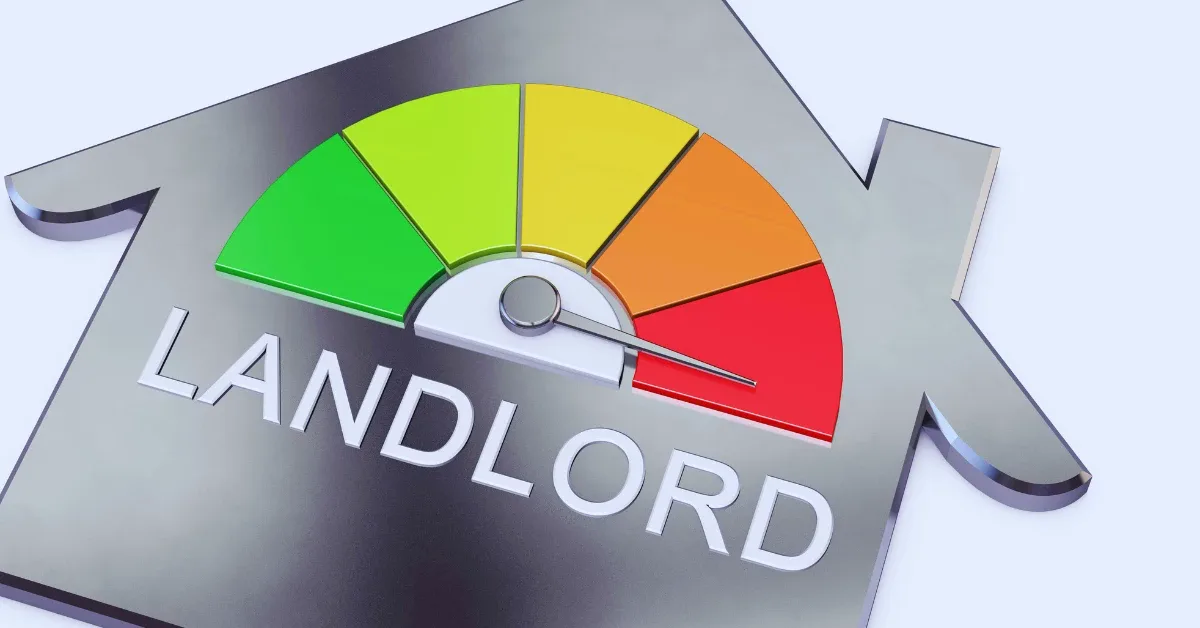Do Landlords Use Fico Or Vantage? – Rental Awareness
Landlords typically use fico scores when assessing a tenant’s creditworthiness rather than vantage scores. Fico scores are widely used by lenders, landlords, and insurance companies to determine a person’s credit risk based on their past credit behaviour and payment history.
As a tenant, your fico score can have a significant impact on your ability to secure a rental agreement and the terms of that agreement, such as the amount of your security deposit and monthly rent payment.
While vintage scores can still provide helpful insight into your creditworthiness, it’s important to understand that Fico remains the industry standard for most financial institutions, including landlords.
Therefore, it’s a good idea to stay on top of your Fico score and take steps to improve it if necessary before applying for a rental property.

Understanding Credit Scores And How They Work
Credit scores are a critical factor for landlords when considering potential tenants. These scores are calculated based on credit reports and give a snapshot of a person’s financial history.

A credit score can range from 300 to 850, with higher numbers indicating a better credit score.
Explanation Of What Credit Scores Are And How They Are Calculated
To determine a credit score, several factors are considered, such as payment history, outstanding debt, length of credit history, and credit utilization.
A credit report contains all of this information, and credit bureaus use algorithms to calculate the score. Some of the essential components that impact credit scores are:
- Payment history
- Credit mix and types
- Credit utilization
- Length of credit history
Differences Between Fico And Vantage Credit Scores
Fico and vantage are two different types of credit scoring models used by credit bureaus.
Fico is the most common credit score used by lenders, and it is calculated based on a consumer’s credit history.
Vantage, on the other hand, is a newer credit scoring model that is growing in popularity.
Here are some of the key differences between fico and vantage credit scores:
Fico credit scores:
- Fico scores range from 300 to 850.
- Fico scores are most commonly used by lenders.
- Fico scores consider credit history, outstanding debts, and payment history.
Vantage credit scores:
- Vantage scores range from 300 to 850.
- Vantage scores consider credit history, outstanding debts, and payment history.
- Vantage scores are less widely used by lenders than Fico scores.
The Impact Of Credit Scores On Rental Applications
Landlords rely on credit scores to evaluate potential tenants. Credit scores provide insight into a person’s financial history, which can indicate if they are responsible for credit and debt.
A high credit score is an indication that the person is capable of paying rent on time and is likely to take good care of the property.
On the other hand, a low credit score may indicate that the person has a history of missed payments or outstanding debts.
To be considered a reliable renter, it is crucial to maintain a good credit score.
How Landlords Use Credit Scores To Determine Rental Eligibility
Landlords use credit scores to determine if a potential tenant is reliable, financially stable, and capable of paying rent on time.
They typically look for a credit score of at least 650, but higher scores may increase the chance of being approved.
Landlords may also consider other factors when evaluating a tenant, such as income and rental history.
Understanding credit scores and how they impact rental applications is crucial for anyone looking to rent a property.
By maintaining a good credit score, potential tenants can increase their chances of securing a rental and showing that they are reliable and trustworthy renters.
Fico Vs. Vantage Scores: Which Ones Do Landlords Use?

Overview Of Fico Scores And Vantage Scores
Fico and vantage are both credit scoring models used to determine a person’s creditworthiness.
Fico scores, created by the fair isaac corporation, range from 300 to 850, while vantage scores range from 300 to 850.
Comparison Between The Two Credit Scoring Models
While Fico and Vantage are similar, there are some differences between the two models. For instance, fico scores consider some aspects that vantage scores do not.
These aspects include the length of credit history, while the vantage model places more emphasis on a person’s overall credit usage.
Which Credit Score Model Is More Commonly Used By Landlords?
When it comes to choosing a credit scoring model, landlords have the freedom to use either Fico or Vantage, depending on their preference.
That being said, fico scores are still the more commonly used scoring model. This is because Fico has been around for much longer and is still the more familiar name to most landlords.
Factors That Influence A Landlord’S Choice Of A Credit Scoring Model
Various factors can influence a landlord’s choice of a credit scoring model. These include their familiarity with the model, the cost of accessing the score, and the accuracy of the data provided.
Additionally, the landlord’s individual preferences may also come into play when selecting a credit scoring model.
Overall, both fico and vantage scores are useful tools landlords can use to evaluate a potential tenant’s creditworthiness.
Pros And Cons Of The Fico Credit Score For Renters

Do Landlords Use Fico Or Vantage
When it comes to renting a property, having a good credit score is essential. Landlords use credit scores to assess the reliability of tenants, and in most cases, they use fico scores.
Fico scores are the most commonly used credit score in us, but what are the pros and cons of using them from a renters’ perspective, and how do they influence rental decisions?
Advantages And Disadvantages Of Fico Scores From Renters’ Perspective
Fico scores are created based on credit reports from Equifax, Experian, and Transunion and range from 300-850.
When renting a property, having a good credit score can be advantageous in gaining approval, securing a lower deposit, and negotiating lower rent.
However, having a poor score can lead to the opposite.
Advantages of fico scores for tenants:
- Higher chances of approval.
- Potential lower deposit.
- Negotiating lower rent.
The disadvantage of fico scores for tenants:
- Lower chance of approval with a poor score.
- A higher deposit is required.
- No room for negotiation with high-risk tenants.
How Fico Scores Influence Rental Decisions
Fico scores are a significant factor in determining whether a tenant is approved or denied.
Landlords may use credit scores to gauge the tenant’s creditworthiness, financial reliability, and ability to pay rent.
Those with higher scores may be viewed as low-risk tenants, while those with lower scores may be viewed as high-risk tenants, which can lead to denials or higher rent and deposit.
Fico scores affect rental decisions in the following ways:
- Credit scores are a significant factor in determining tenancy approval.
- Higher scores may lead to lower rent and deposit.
- Lower scores may lead to denial or higher rent and deposit.
Tips For Improving Fico Scores
Tenants with low fico scores may want to take steps to improve their creditworthiness before applying for rentals.
There are many ways to boost credit scores, including paying bills on time, reducing credit card debt, disputing incorrect items on a credit report, and using credit responsibly.
Tips for improving fico scores:
- Pay bills on time.
- Reduce credit card debt.
- Dispute incorrect items on credit reports.
- Use credit responsibly.
Fico scores are an essential consideration for landlords when assessing tenants’ reliability, financial abilities, and ability to pay rent.
Tenants with good credit scores have a higher chance of approval for tenancy, lower deposit, and potential room for negotiation on rent.
However, those with a poor score may face denials, higher rent and deposit, and limited negotiation opportunities.
As a result, it’s worth taking steps to improve credit scores before applying for rental properties.
Pros And Cons Of The Vantage Credit Score For Renters

Do Landlords Use Fico Or Vantage?
The answer is simple: it varies! Generally, landlords and property managers use credit scores to determine whether or not a potential renter will be a reliable tenant.
There are two primary types of credit scores: fico and VantageScore, both of which generate scores based on a person’s credit history.
Fico scores are more commonly used by lenders, but landlords might use VantageScore to determine a renter’s suitability for a rental property.
Advantages And Disadvantages Of The Vantage Score For Renters
When it comes to credit scores, there are advantages and disadvantages to consider.
Here are some of the things you should keep in mind if you’re a renter with a Vantagescore:
- Vantage scores are more likely to factor in non-traditional credit histories, such as rent payments and utility bills, which can be beneficial for renters who might have limited traditional credit history.
- Renters might have different vantagescores depending on which credit bureau their score was generated through.
- Vantagescores tend to be more volatile than fico scores, meaning they can fluctuate more frequently and to a greater extent.
How Vantage Scores Influence Rental Decisions
Landlords and property managers use credit scores to assess a renter’s reliability and potential to make rent payments on time.
As such, a vantagescore can play a big role in whether or not a renter is approved for a rental property.
Here are some things to keep in mind when it comes to how vantage scores can impact rental decisions:
- A lower vantagescore might be seen as a red flag to landlords, who might question a renter’s financial stability and ability to make rent payments consistently.
- Some landlords might look at a renter’s vantagescore to determine whether or not to require a larger security deposit or to increase the monthly rent.
Tips For Improving Vantage Scores
If you’re a renter with a lower vantagescore, there are things you can do to improve your score and increase your chances of being approved for a rental property.
Here are some tips to keep in mind:
- Consistently pay your bills on time, including rent and utilities, which can be factored into your vantagescore.
- Watch your credit utilization rate, which is the percentage of available credit you’re using at any given time.
- Check your credit report regularly to make sure there are no errors or inaccuracies that might be negatively impacting your score.
While landlords might use either fico or vantagescores, it’s important for renters to understand how a vantagescore can influence their chances of being approved for a rental property.
By understanding both the advantages and disadvantages of a vantagescore, as well as how landlords might use these scores to make decisions, renters can take steps to improve their vantagescore and increase their chances of finding the perfect rental property.
Frequently Asked Questions For Do Landlords Use Fico Or Vantage
What Is Fico Score?
Fico score is a credit score that ranges from 300 to 850, calculating your creditworthiness.
What Is Vantagescore?
Vantagescore is a credit score that ranges from 300-850, consisting of 6 predictive factors.
Which Score Do Landlords Use – Fico Or Vantagescore?
Most landlords prefer a fico score, but some may use vantagescore depending on the credit bureau they use.
Why Is It Important To Know Which Score Landlords Use?
Knowing which score landlords use can help you make better decisions when you are applying for rental housing.
Conclusion
To sum up, it can be stated that both fico and vantage scores are used by landlords to assess a tenant’s financial credibility.
Landlords who choose to verify a potential tenant’s creditworthiness generally prefer fico scores, but those who are flexible with the scoring model might opt for vantage scores.
However, it’s essential to keep in mind that other factors also play an essential role in determining whether a tenant is reliable or not.
Therefore, landlords must conduct thorough background checks and evaluate previous eviction and criminal history before renting out a property.
As a tenant, it is advisable to maintain a good credit score and a trustworthy financial background to enhance your chances of securing a rental property.
Landlords rely on a combination of factors and scoring models to make informed decisions when it comes to renting out a property to applicants with a satisfactory financial background.